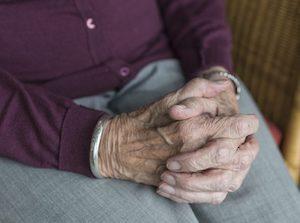Hurt in a Car Accident or
Motorcycle Crash? Lost a Loved
One in a Wrongful Death?
Reporting Elder Abuse in Spring Hill and Brooksville: Hernando County Elder Neglect and Abuse Lawyers Whittel & Melton
January 6, 2021
Elder abuse happens more often than you may think, and often goes unreported. Sadly, at least 5 million senior citizens suffer from elder abuse every year in the United States, according to the National Council on Aging (NCOA). 1 in 10 senior citizens over the age of 60 suffer from abuse, and only 1 in 14 cases are reported to police. The elderly that have suffered abuse are at a 300% higher risk of death compared to those 60+ that have not been harmed or mistreated.
What Constitutes Elderly Abuse?
Elder abuse can be many things, including:
- Physical Abuse: inflicting pain on an elderly person that may or may not result in injuries.
- Sexual Abuse: Forcing, coercing, or threatening an elderly person to engage in any type of sexual activity that they do not or cannot consent to.
- Isolation or confinement: Keeping an elderly person locked away from others or using restraints for no medical purposes.
- Neglect and deprivation: Failure to provide or deny an elderly person in your care with proper medical care, food, water, shelter, clothing, and all other basic needs.
- Emotional Abuse: Intimidating, threatening to harm, harassing, or verbally assaulting a senior citizen.
- Financial Abuse: Misusing, stealing, or withholding an elderly person’s money or property.
Who Commits Elderly Abuse?

Anyone can carry out abuse against an elderly person, but the most common perpetrators are people that take care of an elderly person, such as an elderly person’s child, a spouse, other family members, and staff members at nursing homes, assisted living facilities, and other places that provide care for senior citizens. Men and women can all commit elderly abuse, but in the majority of cases (60% to be precise), a family member is the culprit. In two-thirds of elderly abuse cases, the abuser is a spouse or adult child of the victim.
How Do I Know If Someone is the Victim of Elderly Abuse?
There are warning signs of abuse, so it is important to know what to look for and be prepared to report any suspicious findings. The most common signs of elderly abuse or neglect are:
- Unexplained injuries like bruises, broken bones, burns, pressure marks, etc.
- Stained or torn clothing/bedding
- Withdrawing from normal activities
- Sudden onset of depression or mood changes
- Frequent arguments between the elderly person and their caregiver
- Abrupt changes in financial situations
- Missing money, checkbooks, and other valuables
- Poor hygiene
- Sudden weight loss
- Bedsores
- Medical needs not being met
- Caretakers making belittling comments or threats
What Do I Do If I Suspect Elder Abuse or Neglect?
If you think someone is in immediate danger, you should always call 911 first. If the danger is not immediate, then you can call the Florida Abuse Hotline 24/7 at 1-800-96-ABUSE (1-800-962-2873). You will be prompted to press 2 to report suspected abuse, neglect or exploitation of an elderly adult. You can also file a report online by clicking here.
The number for TDD (Telephone Device for the Deaf) is 1-800-453-5145.
If you wish to fax in a report, you can do so at 1-800-914-0004. Be sure to include your name and contact information with your detailed report.
When you make a report, be prepared to give detailed information about the person such as their full name and contact information. You may be asked a series of questions to better understand the situation, such as if the elderly or vulnerable person has any medical problems, if they have any family members or other support systems, and what types of incidents you have witnessed (yelling, hitting, inappropriate touching, stealing, improper use of restraints, etc.).
You could be asked to provide your name and contact information, but the state of Florida will still take your statement if you wish to remain anonymous.
Who Will Respond to My Report of Elderly Abuse or Neglect?
There are various agencies that check into complaints of elder abuse, neglect, and exploitation. Adult Protective Services (APS) is generally the first to investigate any reports or suspicions, but law enforcement may step in as well, especially when cases involve sexual abuse or assault. Nursing home and assisted living facility complaints are handled by a state Long Term Care (LTC) Ombudsman. Lori Berndt is the District Ombudsman Manager for Hernando County as well as Alachua, Bradford, Citrus, Columbia, Dixie, Gilchrist, Hamilton, Lafayette, Lake, Levy, Marion, and Putnam counties. Here is her contact information:
Lori Berndt, North Central District Ombudsman Manager
1515 E Silver Springs Blvd. #203
Ocala, FL 34470
Phone: (352) 620-3088
Fax: (352) 732-1797
Contact Our Hernando County Elder Neglect and Abuse Lawyers at Whittel & Melton
If you suspect that an elderly family member or friend is being abused in Hernando County, you need to report your suspicions to the proper authorities and then call our Hernando County Elder Neglect and Abuse Lawyers at Whittel & Melton at 352-666-2121 to get more information on how we can help you start a legal claim for financial compensation. We can fight to make sure the abuser or the facility that allowed any abuse to occur is held liable and that proper justice is achieved.















